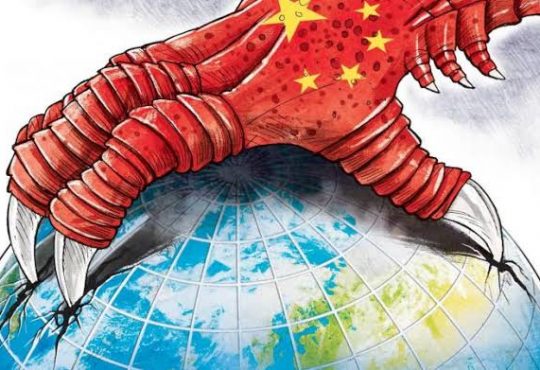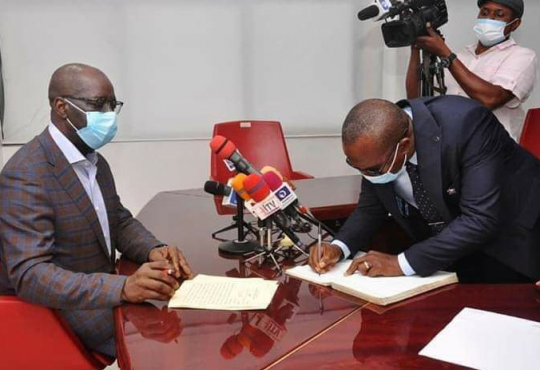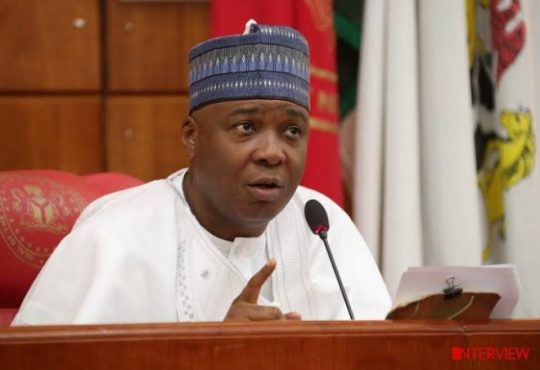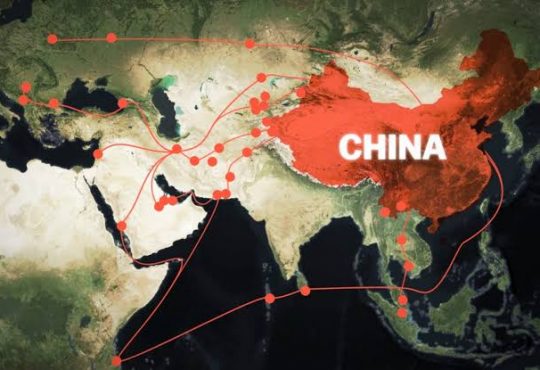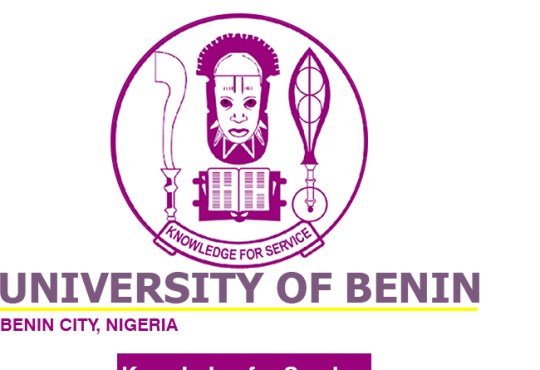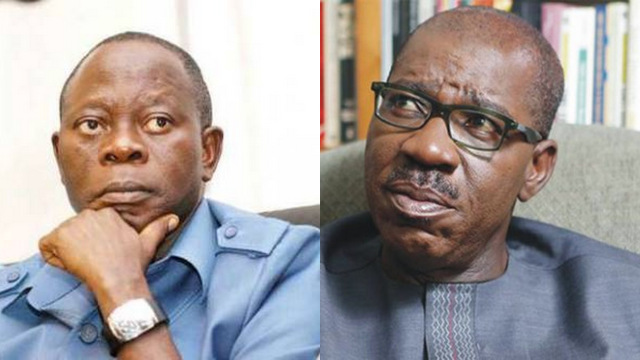
By Lucky Okoedion
After campaigns and several polls, judging by the popularity of the two main contestants – Godwin Obaseki of the Peoples Democratic Party (PDP), and Pastor Osagie Ize-Iyamu of the All Progressives Congress (APC), the only way Ize-Iyamu of the APC can win the September 19 polls is through a record-breaking rigging. One that would be so bad that it will be an unforgettable landmark disgrace in our national history. And since such a rigging would not stand without a follow-up compromise by the judiciary so that the court would not sack such eventual illegitimate governor, the collateral damage that would follow as a consequence of an attempt to rig the Edo State 2020 elections would be so great that it will not only desecrate our national memory, it will also ruin our judiciary. And the question is, is it worth it to go that far, to ruin so many institutions just to deprive a performing Governor of his second term?
Although our nation has become notorious for being led by people who throw caution to the wind when pursuing their political ambitions, yet we still have to remind ourselves of the consequences of certain decisions our leaders make. The Edo Guber Polls of 2020 is unlike any other in the history of the state, and it sets the pace for the next phase in our democracy as a nation, with 2023 national elections in sight with its peculiarities. Any attempt by the All Progressives Congress (APC) to use Federal Might, the police, the military or any other means to rig the elections will have consequences that at the end would be more devastating to the APC and the nation at large than the pain of losing the elections in a free and fair contest.
Before us is a contest between a popular and performing incumbent Governor Obaseki, and the anointed candidate of an erstwhile national chairman of the APC – Pastor Osagie Ize-Iyamu.
Following are the words of Dr. Helal Uddin Ahmed about electoral malpractices and the consequences of rigging elections:
“Election fraud and manipulations are considered pervasive throughout the developing world, giving rise to concerns that they facilitate corruption and inhibit economic growth, as the voters are prevented from holding the elected officials accountable. There are many ways to manipulate elections, including voter intimidation, ballot box stuffing, and changing vote totals after ballots are cast. When election outcomes can be manipulated through fraud, government officials may no longer have an incentive to perform or respond to their constituents’ needs. Worse, elected officials may engage in corrupt behaviour that hinders socio-economic growth. This lack of electoral accountability perhaps explains why, despite the proliferation of democratic institutions across the globe, corruption and poor governance remain persistent problems, especially in the developing nations (Olken and Pande, 2012; Svensson, 2003). Poor governance caused by unnecessary red tape and corruption has been found to significantly inhibit economic progress through their negative effects like discouraging investment (Mauro, 1995; Meon and Khalid, 2005; Fisman and Svensson, 2007; World Bank, 2013).
“According to the USA-based International Foundation for Electoral Systems (IFES), electoral fraud may be defined as “deliberate wrong-doing by election officials or other electoral stakeholders, which distorts the individual or collective will of the voters”. On the other hand, electoral malpractice has been defined by IFES as “the breach by an election professional of his or her relevant duty of care, resulting from carelessness or neglect”.
“In their highly acclaimed book How to Rig an Election (Yale Univesity Press, 2018), Nic Cheeseman of the University of Birmingham and Brian Klaas of the London School of Economics have shown that 75 per cent of elections are won by governments in power through authoritarian adaptation and systemic manipulations. The book made a fascinating analysis of the pseudo-democratic methods employed by despots around the globe to retain power. The authors argue that the increase in voting has not led to a corresponding rise in embracing democratic norms. Rather, voter intimidation, strategic misinformation, and ballot-rigging are common in many countries that describe themselves as democratic.”
“Cheeseman and Klaas claim that most dictators, despots, and counterfeit democrats resort to election rigging by using the law as a tool to ensure their victory: “Rigging can either be legal (such as gerrymandering, candidate exclusion, or voter suppression), or it can be illegal (assassinating rivals or ballot box stuffing). Rigging can also be either effective (resulting in the incumbent staying in power), or it can be ineffective (resulting in an incumbent losing the election and possibly losing power). And finally, rigging can be either subtle (difficult to detect) or blatant (immediately obvious to everyone)”.
“The ‘best’ election rigging tactics are subtle, legal, and effective; nobody knows you’re doing them; if you are caught, it’s technically within the confines of the law; and they ensure you stay in power. Examples of this are excluding opposition candidates on a legal loophole or gerrymandering (which, in the United States, for example, only happens every 10 years, so it isn’t on the minds of most voters on polling day). The ‘worst’ are blatant, illegal, and ineffective. Examples include violent repression and ballot box stuffing (which often leads to incumbents getting caught and sometimes fails to deliver ‘enough’ ballots to overcome a lack of popular support). Of course, no form of election rigging guarantees victory – and even the ‘worst’ cruder, more visible forms of election manipulation like ballot box stuffing can ‘work’ extremely well, assuming it is done with strategic precision”, Cheeseman and Klaas asserts.
“Furthermore, incumbents who rig elections need to think about two main audiences: their own people and the international community. The degree to which they prioritise one audience over another depends on the country’s control of information flows and how well positioned it is without international aid or international legitimacy. For countries that have a strategic relationship with global powers, the spectre of lost international legitimacy by virtue of rigging an election is less threatening than a country that is of little strategic value to global powers and also relies on international aid. However, even in countries in which the international community has minimal leverage over the incumbent regime, if the citizens find out that the election was rigged, it can produce serious consequences (mass protests, general strikes, or a loss of popular legitimacy that lingers on in the form of a higher risk of coups, revolutions, insurrection, or civil war). As with much of election rigging, then, incumbents face a series of tradeoffs as to which threat is most urgent and consequential. Of course, in pure dictatorships like North Korea, media is tightly controlled, so dictators are able to rig elections with impunity and nobody finds out – or if they do, they fear speaking out lest they be tossed in a prison camp or gulag” (Cheeseman and Klaas, 2018).”
“It is therefore not surprising that dictators, despots, and counterfeit democrats rig elections by employing a variety of tactics. Different contexts require different strategies. Cheeseman and Klaas argue as a central theme of their book that dictators and those who rig elections across the globe draw from a toolbox of tactics and tricks rather than relying on just one method. In most cases, these tactics are found to be complementary, working in tandem to ensure that the failing of any one given tactic does not leave anything to chance. So, for example, an incumbent may choose to gerrymander and intimidate opposition voters through violent repression – but may still choose to stuff ballot boxes on the day of the election as an extra layer of precaution. These decisions are often taken based on the degree of their fear of losing power and the degree of damage they would be exposed to for having rigged an election.”
“The co-authors also point out that ‘Only amateurs steal elections on Election Day.’ In reality, the savviest ‘experts’ at rigging elections start the manipulation process well before the voting begins. In fact, it is not outside the realm of possibility that some elections are systematically rigged through cynical government policies even up to two decades in advance. Other pre-election rigging comes in the form of legal but illegitimate or unethical exclusion of candidates. However, early planning is impossible in some cases. In such cases, the incumbents may turn to ‘desperation rigging’ – simply inventing tallies at regional collation centres, or stuffing ballot boxes openly, or killing their opponents in cold blood.”
“Therefore, it is quite clear from the foregoing that preventing and mitigating electoral fraud and manipulations is a huge challenge. The International Foundation for Electoral Systems (IFES) has proposed a framework (2012) for conceptualising election frauds and malpractices as well as their deterrence and mitigation. This may be applied by the affected states as well as the international community and multilateral agencies who seek to promote democratic values and uphold people’s fundamental freedoms by ensuring free and fair elections all over the world”.
Lucky Okoedion is a believer of a new Nigeria where true democracy and effective governance is practiced. He writes from Benin City. And can be reached on +2347038820118 .


